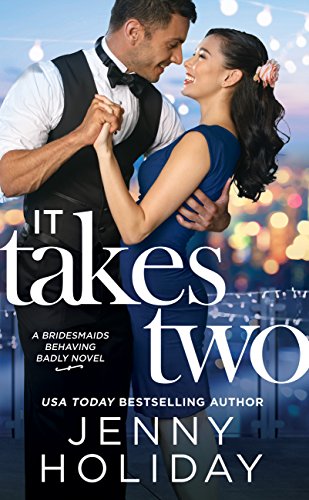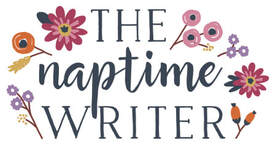|
Yesterday, as Daniel and I were in the midst of a Grace and Frankie marathon (be jealous), I asked Daniel if he thought I was an optimist or a pessimist. “That’s a hard one,” he said, and I agreed. I’m usually easy-going and encourage other people to see the positive, I forgive easily, and in a lot of cases, if something gets me down, it usually doesn’t get me down for long, but…I also see the potential for danger and possible death in a lot of places. I might be moved to tears by an Ellen giveaway episode and I think that people are mostly good, but don’t park too close to that white conversion van because there might be a serial killer inside! (This is kind of a joke but I have had this worry before.) If I were a spy or a member of special ops, this ability to be aware of possible dangers might be a good trait, but as a STAHM, not so much. How do you describe someone who tries to salvage the best out of a bad day but who also sometimes has excessive worries about raw chicken juice and the ink from receipts (that’s a new one, thanks Daniel), and the world ending thanks to Trump and McConnell and a host of other people who dart from the woodwork under open light now? This is how I described myself last night: an optimist with anxiety. I knew that being a mom would change me. I heard it and read it and saw it from enough people and in enough situations that I knew it would happen. And yet, I had no idea the ways that it would. I anticipated that my world would revolve around tiny humans and that I would be responsible their livelihoods, but I never anticipated how the scale of that responsibility would change me, thanks to how I’m mentally wired and also sleep deprivation. How it would make me angry and sad and fearful. How it would make me doubt myself. How debilitating the guilt and grief would be. Today, my mental and emotional landscape feels like a gully washed and worn down by water. It’s a permanently changed landscape, and for the most part, I’ve stopped wishing that that was not the case. Instead, I’ve focused more on being grateful for where I am today. I didn’t think that I would get here. For a long time after Sam was born, I didn’t recognize myself and what I spent my mental and emotional energy on. I didn’t feel like I had a sense of humor. I didn’t feel like I saw the good in myself. I spent more time than I like to think about fantasizing about disappearing, about no longer being here. Here’s where I am today: happy and at peace. I’m not cured of anxiety, but it’s severely diminished, and I’ve learned to live with it in a way that feels good to me. My postpartum life is not like everyone else’s. My experience with postpartum anxiety and depression will not be like everyone else’s who has also experienced those conditions. I’m not a medical professional (obviously), and everything I say should be viewed in that light. But here are some things about my life now. Maybe they’ll help someone. Now. I have two kids, one a toddler and one a baby, and somehow, it’s been much easier. Much happier. More peaceful. On a practical level, here are some reasons why: I’m getting more sleep than I did the first go-round, and I have been since Raymond was a newborn. With Sam, I usually got three to four hours of sleep a night until he was 3 months old, and those three to four hours were spread out over the night. I took naps when Daniel got home from work, until I had to do it over again. There’s no way to describe the utter desolation I felt when I woke up to see a darkening sky and knew that the rest of the night would be filled with the whoosh of the breast pump and my hands under a faucet and my thoughts whirring with anger and desperation. In addition to that, Raymond just hasn’t had the issues that Sam had. The sleeping problems. The reflux. The inability to latch. He’s been easy-going from the get-go. And making this whole experience easier is the fact that this is the second time for me, and it all feels familiar. More than that, I learned from the first time. This is what I know now: I have resources. I already did the hard work, the emotional navigating it took to get me to therapy and medication, the first time around. I already told my secrets to my family and friends and to the world and exposed my fears and my thoughts and my guilt. I’ve known before I got pregnant the second time that if I needed medication, I’d hit the Walgreens drive-through on the way home from the hospital, thankyouverymuchseeyoulaterbye. One of the hardest things that I ever did was walk to my husband, who was lying in bed, and tell him about my intrusive thoughts. I genuinely thought that I would die never having told anyone, and I never imagined that I would be desperate enough to share them with anyone. (Because that’s what it felt like when I told him: the desperation of someone who just couldn’t handle it on my own anymore). But even harder than that was telling a therapist, a stranger. Daniel knew me—he knew my heart—but a stranger would not. Eventually I realized that, while I could and should talk to Daniel about my feelings, I also couldn’t use him as my therapist. It wasn’t right to ask him to serve that function in my life, as my constant validator, and it wasn’t good for our marriage. But it wasn’t even this knowledge, or the feelings of self-harm, that made me seek out a therapist. It was the night I spent folding clothes and imagining moving to North Dakota so that I could get a job and send money to my family, while still removing myself physically from their lives, that convinced me that I had to get help because I was not okay. Those were not the thoughts of someone who was okay. (North Dakota seems like such a random place to move but I heard on NPR that they had a surplus because of a diversified economy. Thank you, NPR.) Going to therapy was one of the best decisions I could have made and getting on medication was even better. Through therapy, I learned thinking strategies that helped change the way I thought about my thoughts and about myself. I had a hard time accepting that negative thoughts were not a true reflection of me—that I didn’t have to analyze each one, assuming that they were indicative of some deeper, malevolent feeling or impulse and evidence that I was a bad person. They were just thoughts. And once I accepted that, it was so much easier to let them go. I stopped holding onto them and trying to unravel them and pressing on them like a bruise just to feel the pain. I just let them flit through. It seems like that should be easy, but at that time of my life, it was the hardest thing I could do. While I don’t think that medication is necessary for everyone, for me, it was. My medication was like a hard reboot for my brain. It helped do the work that my therapy alone couldn’t do, and I noticed a huge improvement in myself while I was taking it, and now, over a year after I stopped taking it. I’ve tried to be more aware of the dangerous mental patterns I fall into, but I’ve also tried not to spend as much time being introspective. After I had Sam and before I took medication, I spent a long time ruminating on things I couldn’t change. I don’t allow myself to do that anymore. I don’t want to ignore the negative parts of my life, but I also don’t want to dwell on them and examine them. For me, it’s important to focus on the positive, and on the present. I’ve deliberately started not thinking about some of the dangers in the world. Listen, if I wanted to, I could worry about everything, and in the worst days of my anxiety, I did. When I worried about everything, I felt guilty if I didn’t do everything I could to avoid or minimize the danger. In my mind, if I knew that something could be dangerous but didn’t do everything 100% correctly, I must be trying to do something wrong. (I see how crazy that is now, but it didn’t feel that way then.) I gradually accepted that everything did not need to be so carefully done, and not doing something 100% correctly did not mean that I wanted something bad to happen—it just meant that I was a normal person trying to live my life, sometimes taking shortcuts if that seemed like something a person could reasonably do. Sometimes I still do this. I remind myself of my parents, who are loving and wonderful, but certainly did not do everything 100% correctly, and look at how I turned out! Okay, maybe this blog post isn't the greatest proof for my point ;). I’m learning more self-acceptance. I can’t tell you how many times I prayed or wished that I could be different. Do I wish that I was 100% cured of anxiety? Um, yes. But that’s probably not going to happen, and that’s okay—in the same way it’s okay that Happy Endings was cancelled. I can focus on the good and happy now. I can be grateful now. For a long time, the backs of my hands told the story of my postpartum anxiety and depression, whether I wanted them to or not.
There was a clear line that marked the angry, red flesh of my hands from the paleness of my forearms. I could see that line any time I stood in the shower and looked in the mirror, when I looked at a photo of myself, or when I gave Sam a bath. Even when I was in the hospital giving birth to Raymond. A lot of times I tried to ignore it, but sometimes I had to answer for it. First, I told anyone that asked that it was from washing so many bottles and breast pump parts for Sam, and that was part of the truth. But the deeper part was that I was/had been severely anxious and depressed, and sometimes I over-washed my hands because I was scared that I was contaminating the parts somehow, and sometimes I over-washed my hands because I was punishing myself. That kind of over-washing does a number on your hands, and it takes a while to get over. It didn’t miraculously go away when I no longer felt depressed and my anxiety had significantly diminished. It lingered for almost three years, a sickening reminder of where I’d been, and I felt ashamed. Recently, I looked at my hands, and they were pale again. I couldn’t see the line. I ran my fingers over the backs and they felt smooth and not scratchy like they had felt for a long time. I pointed them out to some people, proud of how my hands looked. I made Daniel feel them. I’m not ashamed any more, and it doesn't really have to do with the red hands themselves, but with what I think now. I’m not the same person as I was before kids, but I see where I was, and I see where I am. I have anxiety and Donald Trump is president. But these things are also true: I have an amazing husband, two amazing children, the best family and friends in the world, and the numbers of a qualified therapist and psychiatrist.
1 Comment
 The Need to Know: A fun, flirty, and thoughtful foray into the world of weddings and Josh Groban concerts and Vegas bachelorette parties. All the best things, really. This book takes me back. Back to high school, when I had a sweetly intense crush and dreamed of being asked to shuffle from side to side (I mean, dance) in a crowded, semi-dark gymnasium. I remember that longing—for the person to recognize that you were his person—and how the music and the lights and the awkwardly friendly shoulder bumping (don’t ask) all came together to create a moment that I’ll remember forever. In Jenny Holiday’s It Takes Two, that moment is even more emotionally charged. When Wendy Liu, now a defense attorney living in Toronto, was in high school, she was in love with her best friend Jane’s brother, Noah, and he was going to take her to the prom. Instead, he took on an extra work shift, leaving her to stand by herself on the fringes of the dance floor, and reinforcing that she was not important to him on her own—outside of any duty he might feel as her best friend’s brother. On the surface, this moment might seem it was a fairly common moment of benign rejection that a lot of us have experienced. After all, Noah didn’t want to hurt her and didn’t even realize that he was hurting her. But for Wendy, it’s a moment that emphasizes her feelings of isolation and aloneness and leads her to embrace the “don’t buy a cow when you can get the milk for free” philosophy that guides her dating life when we first encounter her. If she doesn’t let down her walls, no one can hurt her. But fortunately for Wendy and for us, that philosophy is threatened when she re-encounters Noah at her best friend Jane’s wedding. She can’t avoid him anymore, and she can try to forget how he made her feel at the dance and how he makes her feel now, but, spoiler alert: she is not. going. to. be. successful. There’s something between them that can’t be ignored, even though she’s his sister’s best friend and he broke her heart and doesn’t know it and they live in different places and they both have walls up. It’s all deliciously complicated and yet still flirty and fun and fresh (that sounds like the perfect slogan for a teen deodorant). It Takes Two is part of Holiday’s Bridesmaid’s Behaving Badly series, and like the first book in the series, this one features strong, independent heroines and decent, strong beta heroes who try to do the right thing and who would do anything for their women. It’s a world that I don’t inhabit (big cities and world travel and stilettos?) but that also feels familiar to me—of friends who have inside jokes about things likes Josh Groban concerts and of high school rejections and of wedding season insanity. Holiday writes skillfully and thoughtfully, and she makes you care about these characters and invested in their happiness if they would only grab onto it (and please grab onto it because I want you to be happy). Heartfelt and sexy, It Takes Two is further proof of Holiday’s remarkable talent. Perfect If You’re in the Mood For: a book that’s kind of like the tv show Friends, only more willing to engage with deeper feelings and motivations and hurts. Pssst! If you like this read, check out: Lauren Layne, and Mira Lyn Kelly’s May the Best Man Win. I received a free copy of this book from NetGalley but all opinions included are my own. |
About me.Give me that HEA, please.
Join my mailing list.Want to receive a weekly email with links to my latest blog posts? Sign up below!
Archives
April 2024
Categories
All
|


 RSS Feed
RSS Feed
